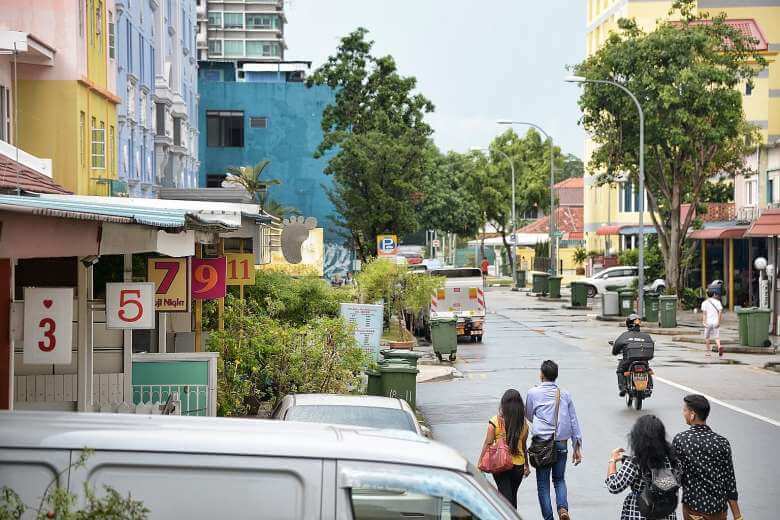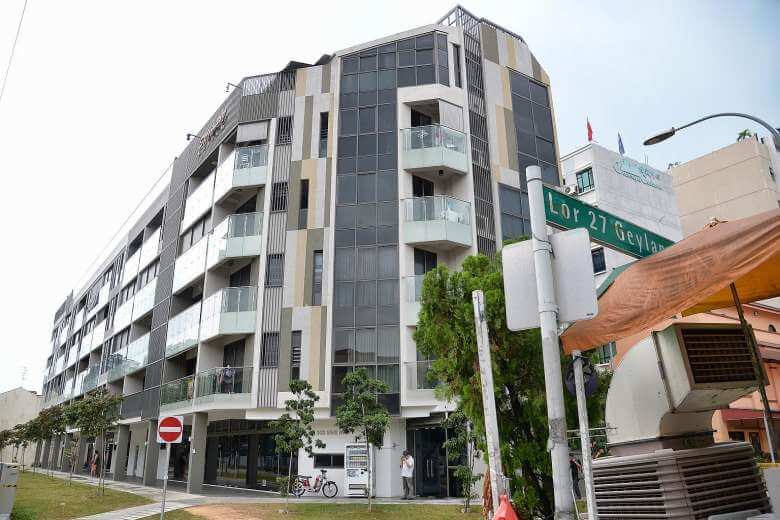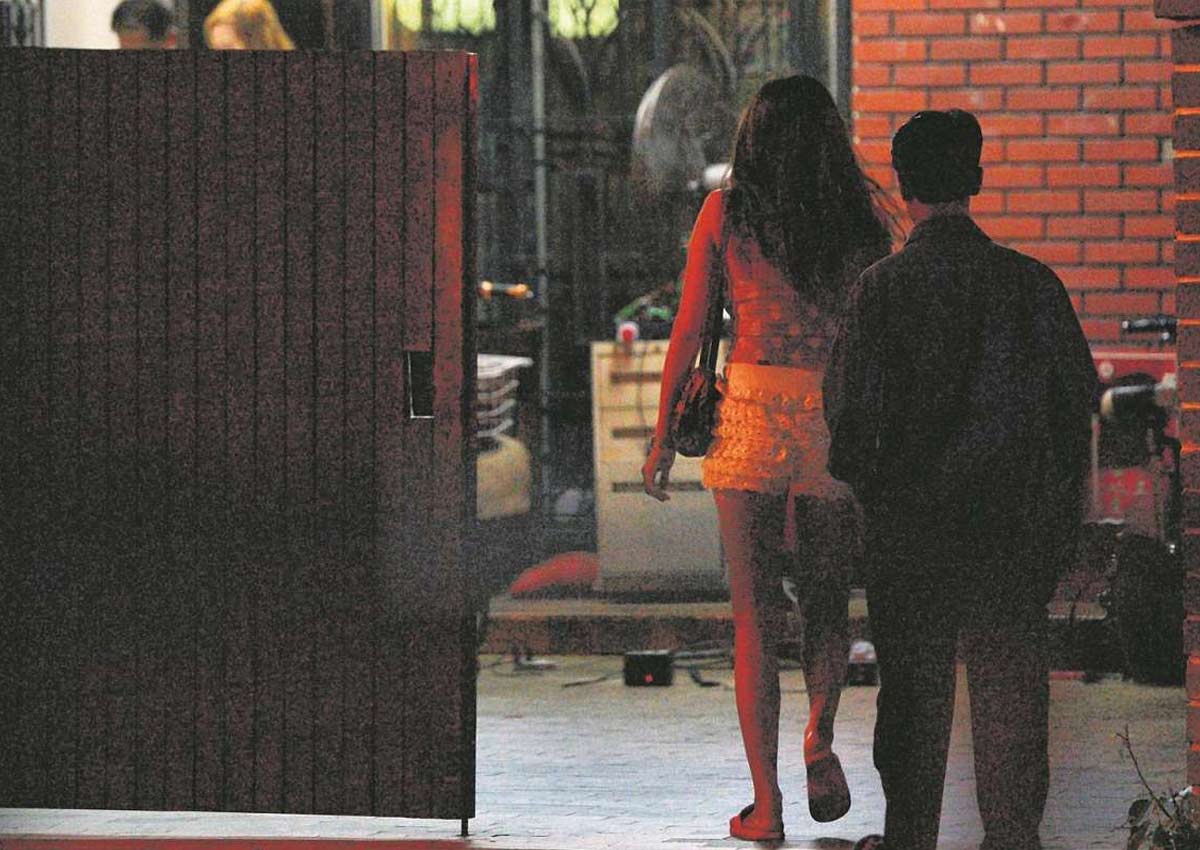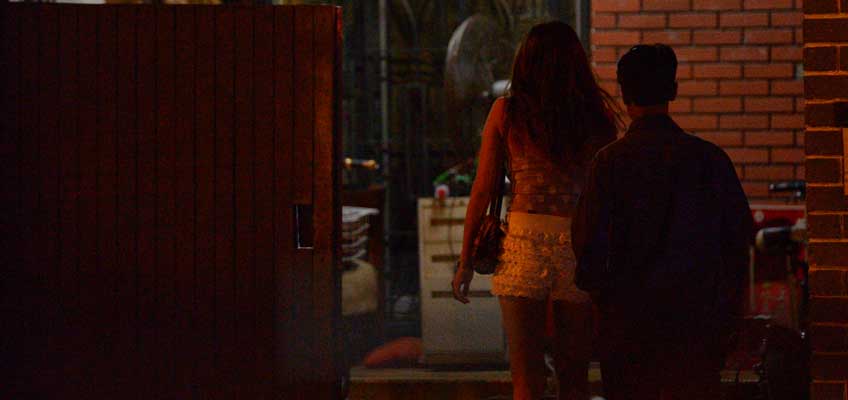Online vice is on the rise and the authorities have changed the laws to combat it.
Changes to the Women’s Charter kicked in on July 1 and they include a new section, 146A, which targets those who operate or maintain websites which offer sexual services or allow prostitutes to advertise.
Those convicted can be fined up to $10,000 or jailed for up to five years, or both.
Section 146 was also tweaked to make clear that it is an offence for a person to live on or receive various forms of gratification in return for helping in the prostitution of another person.
The changes are a response to how the Internet has affected the world’s oldest industry – the sex trade.
Instead of having highly visible red-light districts, the shift online has made prostitution a more hidden and discreet business.
It means prostitutes no longer need middlemen – agencies and pimps – to source for clients or to provide a venue.
And many have decided to have a go at it alone.
Singapore is no exception. Over the past few years, websites where women post advertisements to solicit for paid sex have sprung up. These women operate out of Housing Board or private flats, and the advertisements are grouped according to where they are located – north, south, east, west or central Singapore.
Some websites also have a special section for Geylang. The Sunday Times found at least 60 women using condominium units in the area for prostitution.
Clients can browse the websites by the women’s location, age, bust size, height, types of sexual services offered, or how much they cost.
The women’s “business” addresses are not listed on the websites.
Customers can call or text to find out the rough location. The exact address is revealed only when the client reaches the area.
The police have, in the past, raided HDB flats in areas such as Woodlands, Jurong West and Ang Mo Kio that were being used for prostitution.
In Parliament earlier this year, during the second reading of the Women’s Charter amendment Bill, Mr Alex Yam, an MP in the Marsiling-Yew Tee GRC, asked how the law would deal with sites that are hosted abroad.
“A simple Google search will reveal that there are many such sites but there are no provisions under Section 146 for this,” he noted.
Ireland, for instance, banned the advertising of sexual services in 1994. However, it has had limited impact as the websites simply moved abroad.
In his speech, Minister for Social and Family Development Tan Chuan-Jin acknowledged the online vice problem and the challenges it posed.
He said: “The rise of online media has allowed vice syndicates to take their business online to widen their reach to clients, while hiding behind the anonymity of the Internet.
“This makes it challenging for the police to prevent and detect criminal groups conducting such a business.
“Sexual services at hotels and residences arranged by vice syndicates using new technologies also affect the public’s sense of safety and security.”
Such friction has already surfaced in Geylang.
Last year, the Urban Redevelopment Authority (URA) said that some parts of the red-light district in Geylang will be rezoned for “commercial/institution” uses to halt the development of more homes in the area.
“This is to minimise the issues arising from incompatibility of uses, and friction between residential and non-residential uses in the area,” the URA had said then.
IT manager Henry Goh, 43, said that more condominium and shoebox units in Geylang are being used for vice.
“Two to three years ago, there was one unit on my floor using it for such purposes but now, there are three on my floor alone,” said Mr Goh, who lives at Viento, a condominium in Lorong 30.
“It is obvious. Seven to eight different men visit the unit at different times at night. So I just make sure I lock my doors.”
Mr Adhi, 32, an engineer who lives at Smart Suites, off Lorong 27, said he finds it disturbing when strange men call on the intercom at night.
“We have to keep saying that it’s the wrong number.”
He added, highlighting his concern: “It is not safe as we have a four-year-old daughter.”
Ms Vanessa Ho, 28, director of sex workers’ rights group Project X, said stepped-up police patrols in areas such as Geylang in the past few years have resulted in more sex business being transacted online.
She said: “This makes it harder for us to reach out to support them in terms of their safety or health, and the changes in law further stigmatise them and give their customers more leverage to threaten or abuse them behind closed doors.”
Project X started an outreach programme two years ago for escorts who ply their trade online, mostly to inform migrant sex workers of the support services it provides.
It is also in contact with a small group of local freelancers, who are mainly students and professionals.
Meanwhile, a Ministry of Home Affairs spokesman said that the police take a pragmatic approach to prostitution, which focuses on confining vice activities within traditional red-light areas.
He said: “Enforcement action is also taken to ensure that organised groups do not gain a foothold through such activities, and that no person is forced into prostitution or exploited.”
‘Internet posting is like a job ad’

Sex workers used to be a common sight in Geylang (above) as they worked in brothels or plied the streets under the watchful eye of pimps. But the rise of the Internet has led to a new group of Geylang prostitutes – freelancers, who rent apartments both within and outside the traditional red-light districts and use the Internet to look for customers. Photo: The Straits Times
Like most 19-year-old Singaporeans, Samantha (not her real name) is smartphone- and Internet-savvy.
During the day, she uses the Internet to do research for her school work – she is pursuing a business diploma in a private institution.
But at night, she turns to the Internet to meet clients.
Samantha is a freelance social escort. She advertises her services on various local online websites and charges $500 an hour for sex.
“The Internet posting is like a job advertisement. I am a service provider,” said the petite woman with shoulder-length hair. “I am doing this to support myself.”
Samantha started working as an online social escort in July last year after graduating from the Institute of Technical Education (ITE). She could not get into a polytechnic but wanted to continue her studies.
“I have only ITE education and needed money quickly for the private diploma,” she said.
“The private diploma course fee is $10,000 a year; and I want to go to a private university eventually, which will cost much more.”
Asked why her parents did not pay for her education, she would only say: ” Family problems.”
She was introduced to an escort agency owner who then recruited her. The agency closed down at the end of last year, after a series of police raids, and she decided to strike out on her own.
“With the Internet, I am free to choose my clients and my working hours,” she said. “In an agency, I have to take clients assigned to me.”
Agencies also take a 40 per cent cut from her earnings. She charges around $500 to $600 an hour.
While the Internet postings are free, she pays the websites to ensure that her listing appears at the top of searches.
She gets about one to two clients a week through the Internet, and meets them in hotels.
“Most are locals. Some are regulars from my agency days.”
The job is not without risks. Top of her worries are clients who are violent. “I am petite and I cannot fight them,” she said.
Before meeting new clients, she screens them by asking them questions via e-mail. She also turns to a small network of friends, who are in the same trade, for support.
“I ask them if they know the client. I also message them before I go into the hotel room to meet him and after I come out, so that they know that I am safe,” she said. “I also turn to them to complain about clients.”
She spoke of one experience in which a client demanded a service she was not comfortable with. “I just closed my eyes and got on with it.”
She also recounted an incident involving another social escort, who agreed to be tied up, but the client took advantage of her immobile state. The escort did not report the incident, said Samantha, because she was worried about getting into trouble with the law.
From this month, it is an offence to operate or maintain a remote communication service that offers or facilitates the provision of sexual services.
Samantha said the Internet is her lifeline of sorts. “It is not as if I can print and distribute fliers.”
She wants to stop working as a social escort in a few years. “I will get a normal, office-based job,” she said.
But her experience as a social escort has scarred how she views relationships with men.
“After meeting these men – who cheated on their wives and partners – I can never have a normal, romantic relationship in the future,” she said. “I have trust issues.”
Prostitutes turning to less visible avenues to ply trade

Smart Suites, one of the condominiums in Geylang where prostitutes advertising online are operating from. MHA said the police will take action against owners of residential apartments used by vice workers. Photo: The Straits Times
Geylang’s brothels and streetwalkers are the most obvious signs of its notoriety as a red-light district, but the sex trade there is expanding into areas less visible.
The Sunday Times found at least 60 prostitutes from China advertising their services online and operating in condominiums and apartments in Geylang.
The advertisements were on at least 10 websites.
Instead of relying on pimps and brothel keepers, the women post suggestive photos of themselves and ask those interested to contact them on mobile phones directly.
These freelance prostitutes enter Singapore on tourist visas and typically work for up to one month.
The websites are hosted abroad.
When The Sunday Times contacted the numbers provided by 15 different advertisements, the women who responded disclosed which lorongs they were in.
Three gave their apartment blocks readily, but none revealed their unit numbers.
“I am at a condo at Lorong 39, dear, what time can you come?” asked one by SMS. She advertised herself as being 29 years old. Her charges were $80 an hour.
“Call me when you reach and I will tell you the unit number,” said another, who advertised her age as 25.
A source familiar with these prostitutes said that these apartments are upmarket.
“These are mostly studio or one-bedroom apartments. One of them even has a private lift that stops at the doorstep of the apartments,” he said.
“There are no security guards. Residents have key cards and customers need to punch in the apartment number on the intercom and look into the camera for the women to confirm their identities before they are let in,” the source added.
“The women typically rent a room for $100 or $120 a day for a whole studio apartment.”
The Urban Redevelopment Authority (URA) said there are about 1,000 residential units within the Geylang red-light district and another 7,500 private homes nearby. It added that short-term rental of less than six months is not permitted.
“When we receive feedback on such subletting infringements, we will investigate together with related government agencies against various contraventions within their purview,” said the URA. “Cases involving suspected vice activities are referred to the police.”
The Ministry of Home Affairs (MHA) said that there has been a rise in the number of foreign women arrested for vice-related activities in apartments in Geylang.
“The police will continue to take enforcement action against any organised groups and the apartment owners who allow their apartments to be used by the vice workers,” said an MHA spokesman.
The police focus is to maintain law and order in Geylang and it has implemented measures such as better street lighting, more police cameras and stepped-up patrols. This has reduced the number of streetwalkers, said the spokesman.
Ms Vanessa Ho, director of sex workers’ rights group Project X, said that a cleaned-up Geylang is not necessarily a positive move for sex workers.
“Geylang looking clean is not indicative that the industry is getting safer (for the sex workers); they have merely moved behind closed doors,” she said.
Mr Alan Fong, chairman of the Residents’ Committee at Central Meadows in Lorong 34, Geylang, said: “It does not happen at our condo. A few years ago, there were three prostitutes from Malaysia who rented (a unit) here but they have moved out.”
However, some other Geylang residents did not know they had prostitutes as neighbours while others were concerned about it.
“Of course I feel unsafe,” said Smart Suites resident Jenny Wu, after The Sunday Times told her that a prostitute told the newspaper that she was working in the condominium at the junction of Sims Avenue and Lorong 27, Geylang.
“There are families with young children here so security and privacy can be issues when sex workers use residential units,” added the 28-year-old commodities trader, who lives alone in an apartment that she rented last year.
Govt boosts law to fight online vice
The Ministry of Home Affairs told The Sunday Times that it expects online vice to rise, given the increasing access to the Internet, but it has put more teeth into the law with new additions that will help the police to fight the problem.
“The trend has been driven by the emergence of specialist websites, apps and other Internet technologies, which have enabled vice syndicates and sex workers to reach a wider audience, hide behind the anonymity afforded by the Internet and conduct vice activities discreetly,” a ministry spokesman said.
“This presents some challenges for the police (who are working) to prevent and detect criminal groups conducting such illicit activities.”
The police have also observed an increase in the number of foreign women arrested for vice-related activities in apartments in Geylang.
But along with regular anti-vice operations, the changes to the Women’s Charter make it an offence for persons here to run any website in Singapore that offers or facilitates prostitution, or to provide a service which aids in the prostitution of another person.
The spokesman said the police will continue to take action against any organised groups and apartment owners who allow their units to be used by vice workers.
He added: “It is not realistic to expect vice… to be eliminated. The police are focused on maintaining law and order in Geylang and have taken strong enforcement actions against those involved in illicit activities.”
Initiatives, such as better lighting conditions in the lorongs and backlanes of Geylang and the installation of more police cameras, have helped to reduce the number of streetwalkers there.
He said the police will continue to conduct enforcement operations regularly to deter and detect such activities, and work closely with the community and other agencies to clamp down on vice activities and stamp out vice syndicates.

This article was first published on July 10, 2016.
Get a copy of The Straits Times or go to straitstimes.com for more stories.







